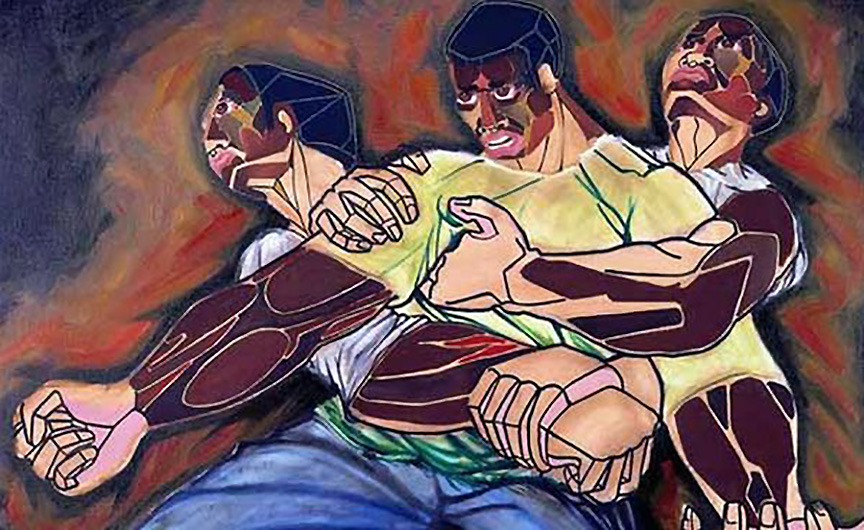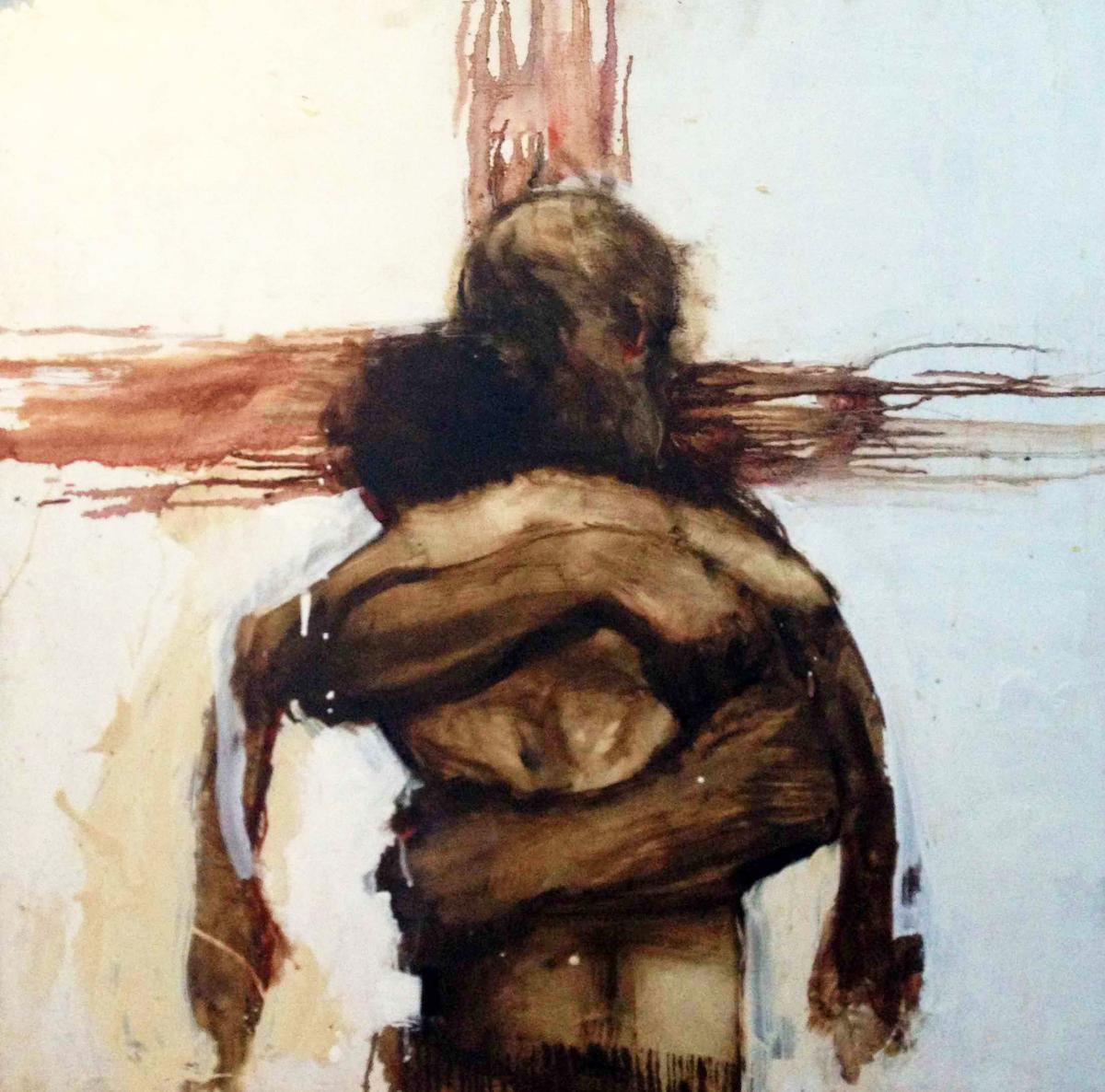February 21: Instructions
♫ Music:
Day 8 - Wednesday, February 21
Title: Instructions
Scripture: Luke 17:1-4
He said to His disciples, “It is inevitable that stumbling blocks come, but woe to him through whom they come! It would be better for him if a millstone were hung around his neck and he were thrown into the sea, than that he would cause one of these little ones to stumble. Be on your guard! If your brother sins, rebuke him; and if he repents, forgive him. And if he sins against you seven times a day, and returns to you seven times, saying, ‘I repent,’ forgive him.”
Poetry: The Way In
By Linda Hogan
Sometimes the way to milk
and honey is through the body.
Sometimes the way in is a song.
But there are three ways in
the world: dangerous, wounding,
and beauty.
To enter stone, be water.
To rise through hard earth, be plant
desiring sunlight, believing in water.
To enter fire, be dry.
To enter life, be food.
REPENTANCE
Confession is good for the soul, so the adage goes. But what confession? In today’s social media saturated world, the idea of sharing – from sharing what I ate for breakfast to how I got away from paying an expensive ticket – these “confessions” are commonplace. It is also common to air grievances and denounce acts by others that we do not agree with. Facebooking, tweeting, or sharing by whatever media is not all bad. It serves gives many people good opportunities to come clean publicly, get things out of their chests, and even honestly own up to one’s misdeeds. However, this in some ways trivializes confession, which was traditionally related to repentance. Some of repentance is built into the understanding of confession – in all its forms (e.g. through accountability, coming clean on misdeeds, or relating sins and transgressions to a priest – in the case of a Roman Catholic experience).
Webster's New World College Dictionary defines repentance as "a repenting or being penitent; feeling of sorrow, especially for wrongdoing; compunction; contrition; remorse." The Eerdmans Bible Dictionary defines repentance in its fullest sense as "a complete change of orientation involving a judgment upon the past and a deliberate redirection for the future." It is a change of mind, a turning away from sin and a return to God and His ways. It is a recognition of personal (or communal) offense to God and the inability on our part to save ourselves.
The message of the cross is one of repentance. It is an invitation to accept God’s sacrifice as the propitiation for our sins. The good thing is, God has initiated, through Christ, the invitation for repentance and offers us forgiveness. Jesus declares, “Come to me, all who labor and are heavy laden, and I will give you rest.” (Matt. 11:28). That is an echo from Isaiah, who speaking for the almighty God proclaims,
“Come now, let us reason together, says the Lord:
though your sins are like scarlet,
they shall be as white as snow;
though they are red like crimson,
they shall become like wool. Isaiah 1:18 (ESV)
Justice demands the offender pay for their sins or breach of the law. Just acknowledging our faults or sins is not enough – unless that is in the self-serving way in social media. The guilty one needs to pay a restitution for the crime committed. God offers that payment through Jesus’ death on the cross. At repentance, our sins are not held against us anymore. They are forgiven.
Repentance is an act of faith. It is acknowledging our inability to save ourselves and accepting the gift of the only one who can truly forgive, Jesus Christ. In turn, forgiveness helps us to repent to people around us who we have wronged and extend the same forgiveness to them because we have received this gift freely, without a payment. Repentance is what restores us to God and holds the possibility for the restoration of our relationships, one with one another.
Prayer:
Lord of all grace, we are grateful for your gift of love and forgiveness towards us in Jesus. Help us to accept by faith this gift, and in repentance, receive forgiveness and salvation in Him. Help us also to humbly repent to those we have wronged and seek their forgiveness. And as you have commanded us, give us the courage and strength to forgive all those who have sinned against us, even when they do not recognize their sin, and are not willing to repent. For your glory and for our good.
In Christ’s name we pray,
Amen
Dr. M.D. Kinoti
Associate Professor for Nonprofit Management
College of Business & Economics
Regis University, Denver, Colorado
Information about the artists, poets, lyrics, artwork, composers, and musicians in the Lent Project may be found on the “About” tab located next to the “Devotional” tab.
About the Artwork #1:
Confrontation
Arthello Beck
1969
Oil on canvas
78.74 x 91.44 cm
This work by Arthello Beck demonstrates the confrontational struggle of aggression, anger, resentment, and unforgiveness. In this passage of Luke, Jesus admonishes His disciples to forgive. The powerful diagonal lines in the composition and the use of strong color underscore the physical, emotional, and spiritual battle of this encounter.
About the Artist #1:
Arthello Beck Jr. (1941–2004) was an African-American artist working in a variety of mediums. He is possibly known best for his works from the 1960s dealing with the Civil Rights Movement, but he also explored other subjects including children, religion, and human interactions, particularly in the African-American communities found in the southern regions of the United States. He established the Arthello Beck Gallery, which became a centerpiece of the Dallas, Texas, area art scene in the 1970s and 80s, and was instrumental in promoting the careers of many African-American artists. Beck was a member of the National Conference of Artists and the Southwest Alliance of African-American Artists, and was one of the founders of the Southwest Black Artists Guild.
About the Artwork #2:
Bloody Redemption
Charles Mackesy
Oil on canvas
About the Artist #2:
Charles Mackesy (b. 1962) lives in Brixton, South London. He never went to art school, but spent three months in America as an apprentice to a portrait painter and learned about anatomy and composition. He began his art career as a cartoonist for The Spectator and as a book illustrator for Oxford University Press before exhibiting in fine art galleries. Mackesy states, “I am cautious to explain what I think the work is saying for fear of taking away from you something you have seen and I have not. I could conclude by saying that life is precious and faith is a journey and sometimes art can give a small glimpse of these moments seen, and unseen. I think GK Chesterton put it better-- 'At the back of our brains is a blaze of astonishment at our own existence. The object of the artistic and spiritual life is to dig for this sunrise of wonder'.”
Music #1 & #2:
“Found Footage” from the album “Found Footage” and single “Quake”
Composers/Performers:
Take/Five is Erin Karaviotis (b. 1996), an electronic music producer from the UK. Take/Five makes a wide range of music with a focus on creating organic sounds solely using digital means and digital audio workstations with software like FL Studio and Pro Tools. Take/Five has received over 80,000,000 streams online across platforms like YouTube, Soundcloud, and Spotify, and has received radio airplay from BBC Radio 1 & Apple Beats 1. Today’s second track, “Quake,” is a collaboration between Take/Five and digital recording artist Jordon Comolli, who creates dubstep and electronic music.
About the Poet:
Linda K. Hogan (b. 1947) is a poet, storyteller, academic, playwright, novelist, environmentalist, and writer of short stories. She is currently the Chickasaw Nation's Writer-in-Residence. Also a novelist and essayist, Hogan’s work centers on the world of Native-American peoples, the environment, and her own indigenous perspective. She is currently known by students of ecological literature and eco-poetics. She was a professor of creative writing at the University of Colorado and then taught for two years in the University's Ethnic Studies Department. Her most recent teaching positions have been as Writer-in-Residence for the Chickasaw Nation and as a professor at the Indian Arts Institute in Santa Fe, New Mexico.
About the Devotional Writer:
Dr. M.D. Kinoti is currently an Associate Professor of Nonprofit Management at Regis University in Denver, Colorado. Kinoti has worked with multicultural teams in international community development and has taught at the graduate level for over 25 years. He has trained and consulted for many international agencies seeking to design appropriate cross-cultural management programs and effective partnership relationships. His professional interests include research, writing, and training in International community development, International NGO management, multicultural and Intercultural understanding, and peacebuilding. Kinoti’s other interests include the role of religion in peacebuilding in multi-ethnic cities of the 21st century.

